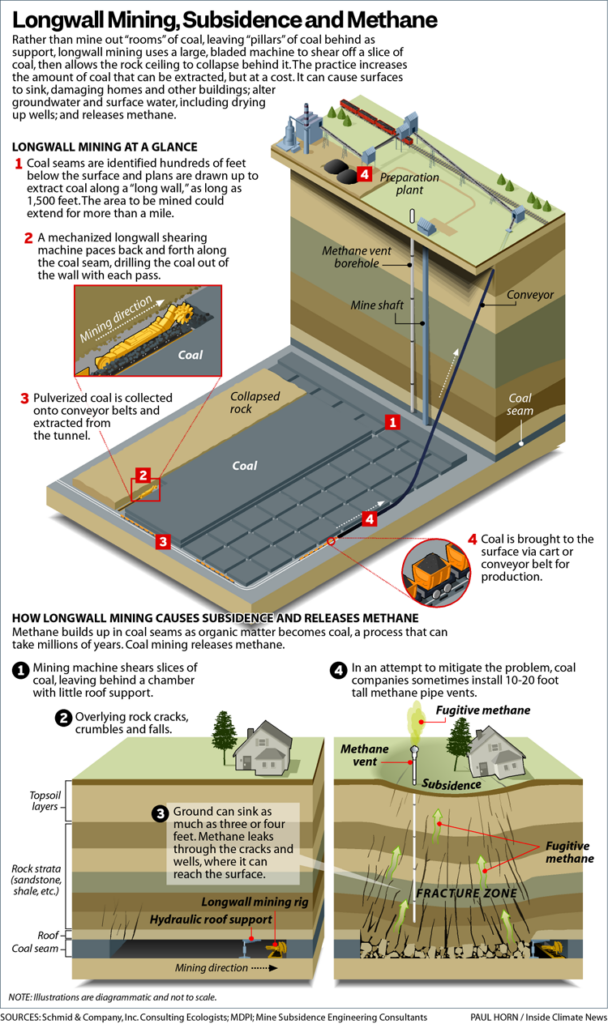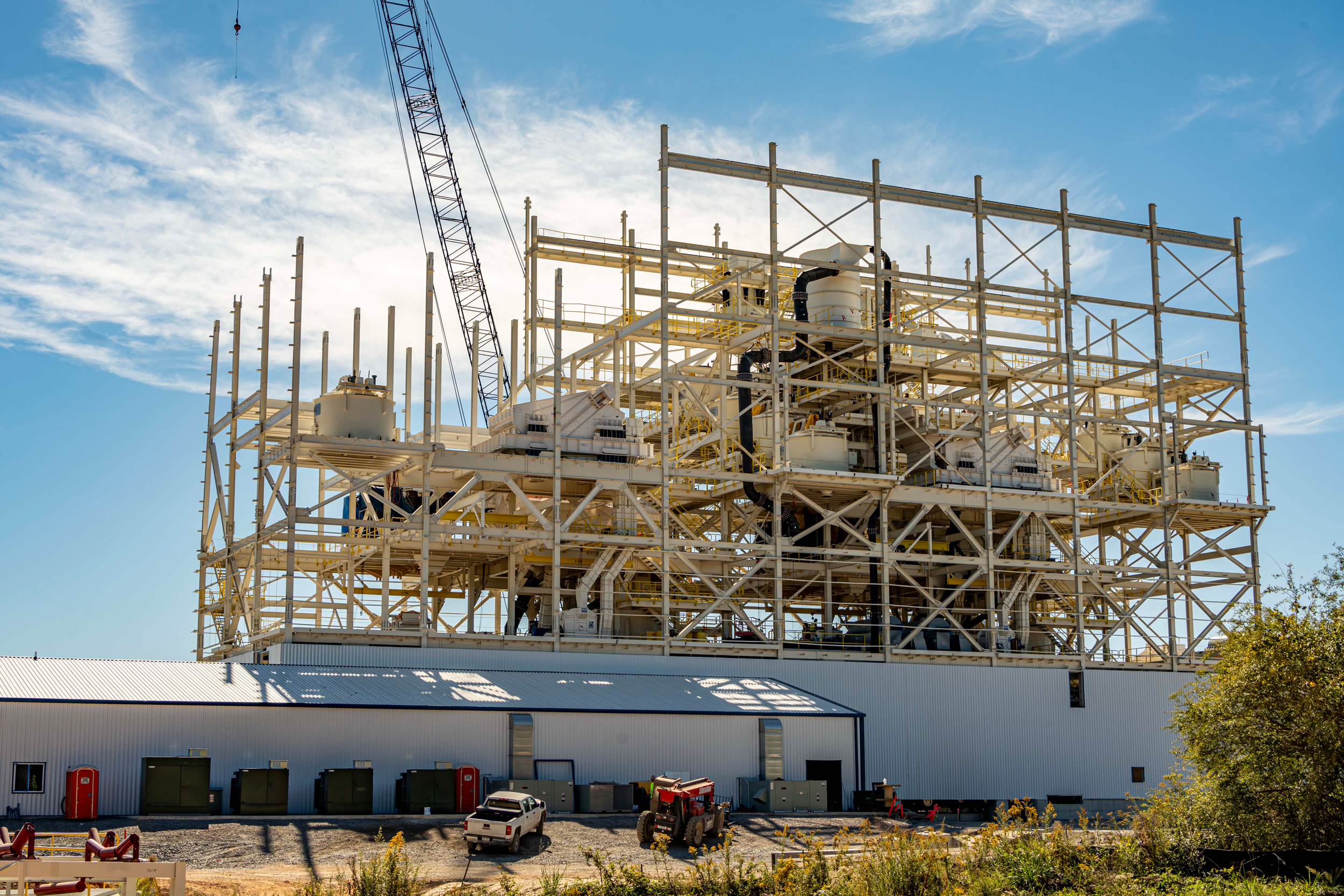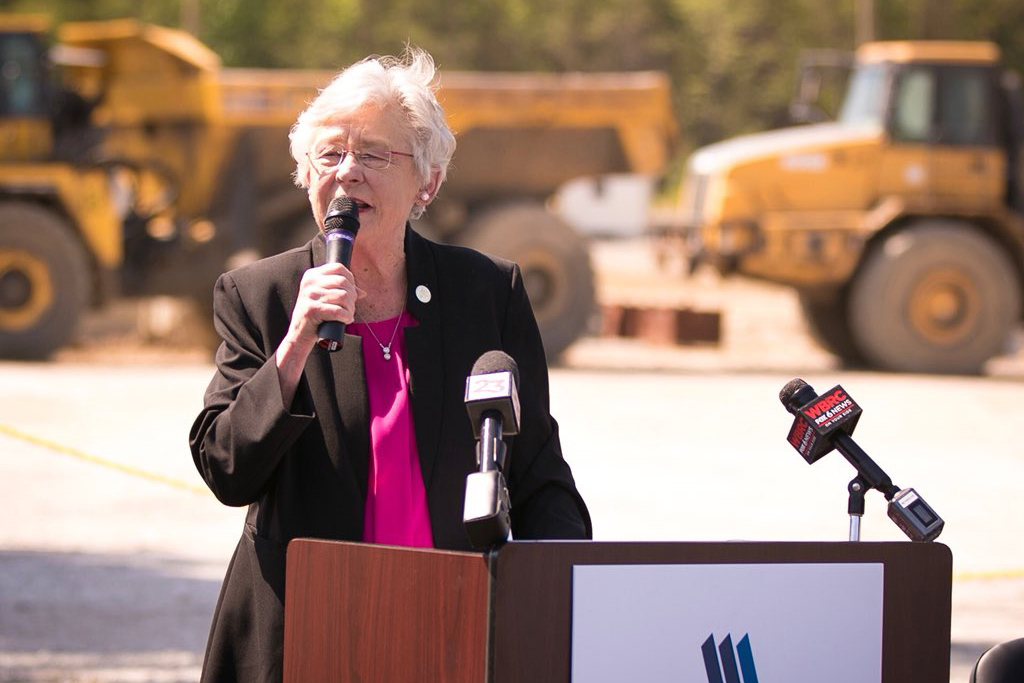Alabama Mine Expansion Could Test Biden Policy on Private Extraction of Publicly Owned Coal
BERRY, Ala.—An Alabama mining company is taking final steps toward a major buildout of its operations in the central part of the state.
The expansion, which is proposed to include the mining of federally owned coal, comes in the wake of a settlement over the company’s environmental record and as its mines continue to be cited by regulators for alleged safety violations.
The project’s fate has become a litmus test for the Biden administration, which has moved to phase out mining of federal coal in the Powder River Basin of Montana and Wyoming.
Warrior Met Coal, based in Brookwood and one of the largest producers of metallurgical coal in the United States, is nearing regulatory approval for expanded operations at its Blue Creek facilities between Birmingham and Tuscaloosa, according to corporate filings.
Explore the latest news about what’s at stake for the climate during this election season.
If approved by state and federal regulators, the project would be one of the largest expansions of coal mining in Alabama in recent years, with the new facilities expected to increase Warrior Met’s production by up to 60 percent. Public financial support for the facility and its export of coal to overseas markets for use in steel-making may top $400 million.
The project is set to use the destructive longwall mining method, where bladed machines shear coal from expanses as wide as 1,000 feet, extracting coal from an area that can extend well over a mile. The rock ceiling, called “overburden,” then collapses behind the cutting tool. When the ceiling of the mine collapses, the ground above the mine sinks, sometimes by several feet, even though it may be hundreds of feet above the mine.
This subsidence, or sinking of land, caused by longwall mining can lead to serious surface impacts, such as damage to buildings and draining of creeks and ponds, as well as increasing risks related to methane escape. Oak Grove, a small community about 25 miles southeast of Warrior Met’s expansion, has become an ominous example of those impacts, with residents outraged by closing businesses, undermined homes and a fatal home explosion atop the mine.

Unlike the operation in nearby Oak Grove, however, Warrior Met’s expansion at Blue Creek may also include the extraction of publicly-owned coal managed by the Bureau of Land Management, a federal agency.
In Alabama, as in many other states, so-called “mineral rights”—the right to, for example, mine for coal under one’s property—have been separated from surface ownership over time. One person or entity can own a surface property under Alabama law while another person or entity can own the rights to all of the resources below that same piece of land, a situation known as a “split estate.” In significant portions of Alabama, for example, the federal government retains mineral rights despite private land ownership on the surface.
BLM announced in April that it would conduct an environmental assessment related to Warrior Met’s proposal to mine 14,040 acres of federal minerals underlying privately owned land in Tuscaloosa County. Warrior Met’s applications to lease the coal rights propose to extract approximately 57.5 million tons of recoverable public coal reserves, documents show.
In July, the Biden administration announced that the federal government plans to phase out coal leasing in Montana and Wyoming, a decision lauded by environmentalists and criticized by industry representatives and right-wing politicians. Now, Biden must decide whether his administration will adopt the same policy concerning federally-owned coal in Alabama.
According to records from the Mining Safety and Health Administration (MSHA), the federal underground mine regulator, the Blue Creek facility is regularly fined for safety violations. Records show that just this year, employees of Warrior Met and their contractors inside Blue Creek No. 1 have been cited 76 times for safety violations, 22 of which were labeled “significant or substantial.” In each of these 22 cases, federal inspectors found “a reasonable likelihood the hazard…[would] result in an injury or illness of a reasonably serious nature.” The violations pertained to mining coal through private, not federal, mineral rights.

Warrior Met has also been the target of litigation over its environmental record. In September, Black Warrior Riverkeeper, an environmental group founded to protect and restore the Black Warrior River and its tributaries, settled a suit with the company over a leaking coal slurry impoundment at Warrior Met’s No. 7 Mine in Brookwood. The riverkeeper had documented nearly two dozen distinct leaks from the coal waste pond in the year before the suit was filed, the organization’s lawyers wrote in a court filing earlier this year. The settlement agreement, approved by a federal judge on Sept. 18, requires Warrior Met to limit and monitor leaks from the site, pay $250,000 to the Freshwater Land Trust for a conservation project and reimburse the nonprofit for its legal fees.
“This case is a textbook example of why citizen suits are a critical enforcement mechanism when governments fail to enforce the law,” Eva Dillard, a staff attorney with Black Warrior Riverkeeper, said in September. “We are pleased that [Warrior Met] was willing to take responsibility for the problems at Mine No. 7…”
Public officials have already made major commitments to Warrior Met related to its planned expansion, including both infrastructure investments and tax abatements.
In March, Gov. Kay Ivey announced that, with the support of the Alabama Department of Economic and Community Affairs, the Appalachian Regional Commission would provide $500,000 in taxpayer funding to install public water service to the proposed Blue Creek mine site.
“Access to dependable local water service is essential to attract and grow new business and jobs,” Ivey said at the time. “I am pleased to support this grant to extend water service to support Warrior Met Coal’s expansion in west Alabama.”

Warrior Met also managed to secure a $26.5 million tax abatement from the Tuscaloosa County Industrial Development Authority before the project began initial moves toward construction in 2020.
At the time, a breakdown of the tax incentive estimated that Warrior Met would receive $18 million in tax breaks during the project’s construction and $8.5 million over a decade afterward.
“This project represents a significant investment in our community by Warrior Met Coal,” said Mark Crews, chairman of the Tuscaloosa County Industrial Development Authority, “but also represents valuable job opportunities for our citizens for several decades to come.”
The coal produced at Blue Creek is metallurgical coal, most commonly used in the production of steel. Nearly all met coal extracted in Alabama is shipped overseas to places like China and South America through the Port of Mobile, according to federal records.
Some environmental groups have pushed back on the ever-growing infrastructure needed to keep up the pace of extraction in the Yellowhammer State. Mobile Baykeeper, a coastal environmental nonprofit, has threatened suit over a $366 million project to widen and expand the shipping channel in Mobile Bay, for example, a development largely spurred by the continued buildout of mining operations in the state.
Federal funds accounted for three-quarters of the costs of the ship channel expansion, with the state covering the other quarter. The Alabama Legislature also committed $20 million last year to expand the coal terminal at the port—spending that also included federal funds.
Federal officials have long recognized the potential environmental impacts of continued mining expansion in central Alabama. A resource management plan for Alabama and Mississippi published by the Bureau of Land Management in 2008 noted that further mining development in the central part of the state could, for one, increase the potential for groundwater contamination.
“Migration of contaminants into the surrounding soils and aquifers could degrade ground water quality and thereby affect wells and springs that may serve household and domestic uses,” the report said.
The Blue Creek expansion would also contribute to climate change both directly and indirectly—a reality federal officials are now required to consider in their approval or denial of proposals like the one at issue in Alabama.
BLM’s draft environmental assessment is expected to be published for public review sometime this fall, according to the agency.
“Potential impacts of the proposed action include, but are not limited to, impacts to air quality, including greenhouse gas emissions; impacts on populations with environmental justice concerns; impacts from potential subsidence from underground mining; and impacts to groundwater and surface water quality,” the agency wrote of the Blue Creek project.
Dennis Pillion contributed reporting for this story.
About This Story
Perhaps you noticed: This story, like all the news we publish, is free to read. That’s because Inside Climate News is a 501c3 nonprofit organization. We do not charge a subscription fee, lock our news behind a paywall, or clutter our website with ads. We make our news on climate and the environment freely available to you and anyone who wants it.
That’s not all. We also share our news for free with scores of other media organizations around the country. Many of them can’t afford to do environmental journalism of their own. We’ve built bureaus from coast to coast to report local stories, collaborate with local newsrooms and co-publish articles so that this vital work is shared as widely as possible.
Two of us launched ICN in 2007. Six years later we earned a Pulitzer Prize for National Reporting, and now we run the oldest and largest dedicated climate newsroom in the nation. We tell the story in all its complexity. We hold polluters accountable. We expose environmental injustice. We debunk misinformation. We scrutinize solutions and inspire action.
Donations from readers like you fund every aspect of what we do. If you don’t already, will you support our ongoing work, our reporting on the biggest crisis facing our planet, and help us reach even more readers in more places?
Please take a moment to make a tax-deductible donation. Every one of them makes a difference.
Thank you,
David Sassoon
Founder and Publisher
Vernon Loeb
Executive Editor
Share this article
- Republish
Disclaimer: The copyright of this article belongs to the original author. Reposting this article is solely for the purpose of information dissemination and does not constitute any investment advice. If there is any infringement, please contact us immediately. We will make corrections or deletions as necessary. Thank you.
Title:Alabama Mine Expansion Could Test Biden Policy on Private Extraction of Publicly Owned Coal
Url:https://www.investsfocus.com









